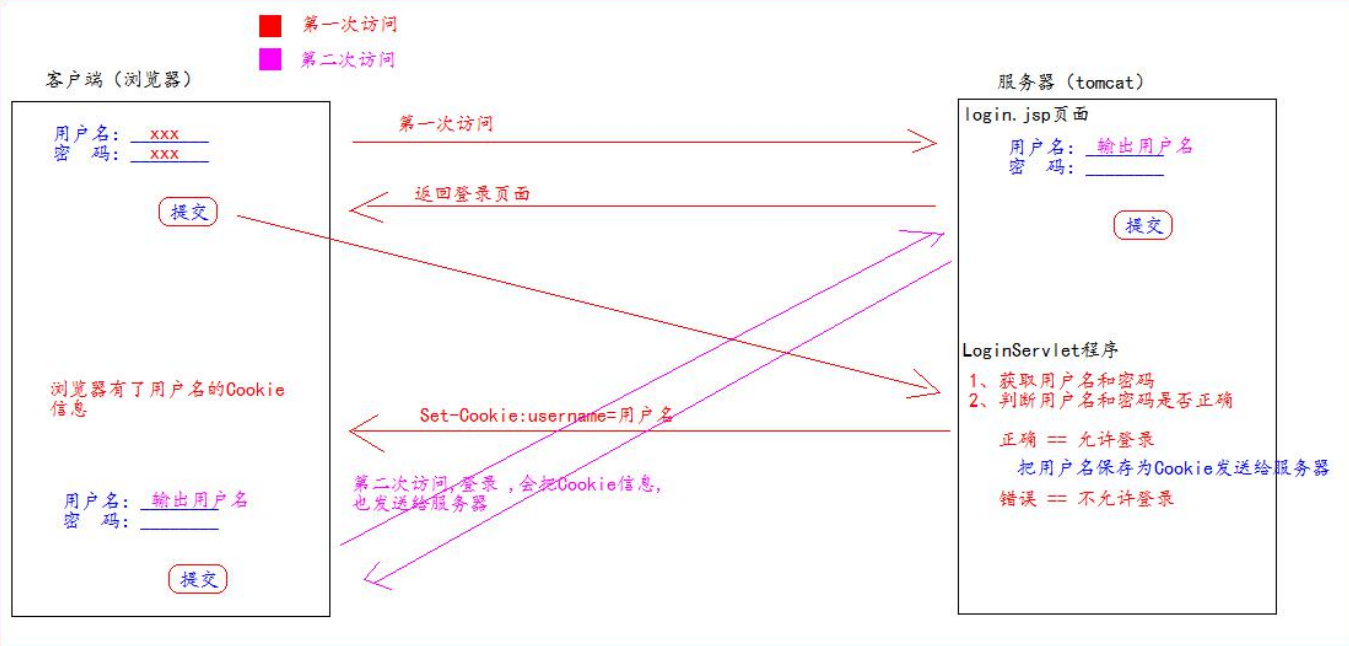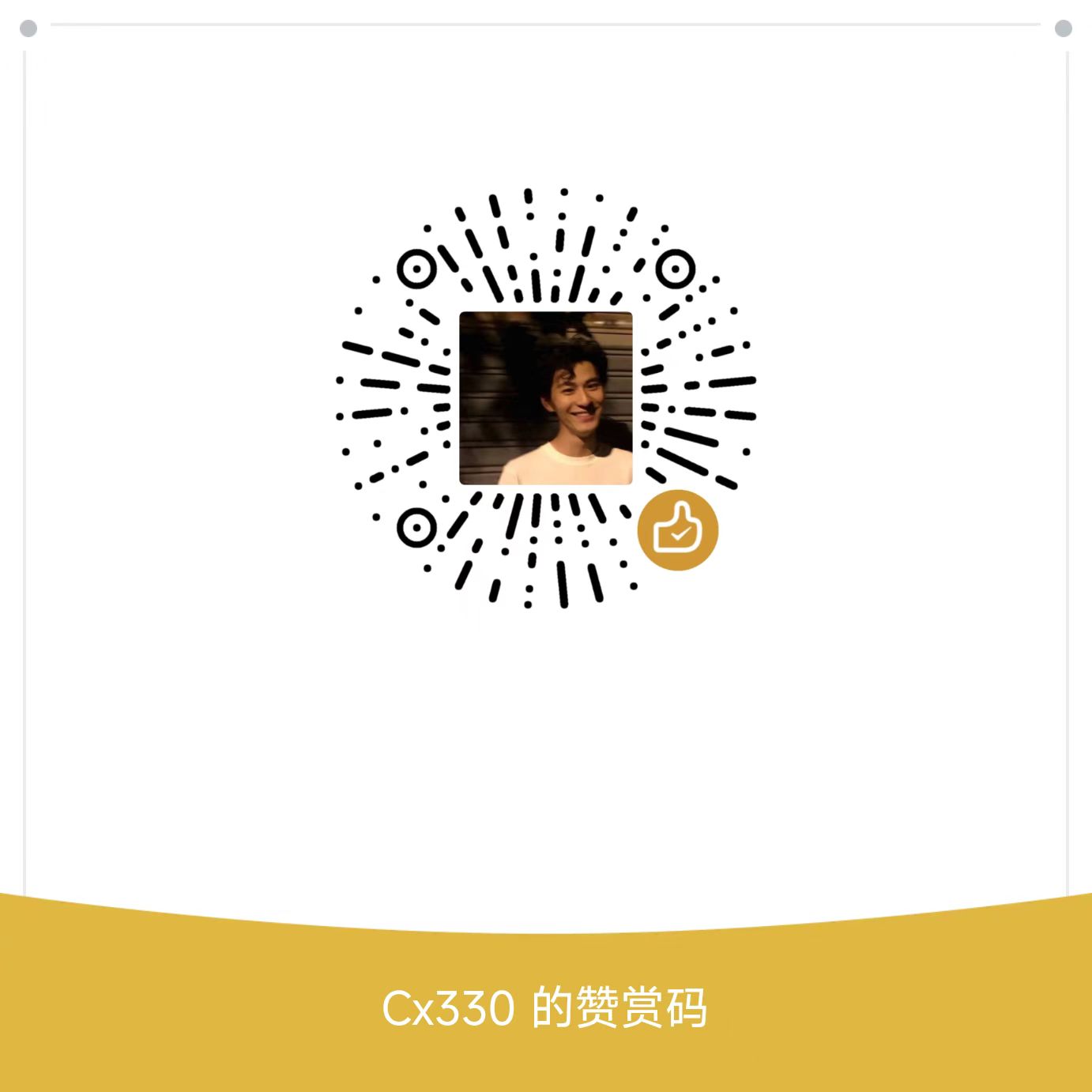Cookie与Session
一、Cookie
- Cookie 是服务器通知客户端保存键值对的一种技术。
- 客户端有了 Cookie 后,每次请求都发送给服务器。
- 每个 Cookie 的大小不能超过 4kb
1.1 Cookie的创建

1
2
3
4
5
6
7
8
9
10
11
12
| protected void createCookie(HttpServletRequest req, HttpServletResponse resp) throws ServletException,
IOException {
Cookie cookie = new Cookie("key4", "value4");
resp.addCookie(cookie);
Cookie cookie1 = new Cookie("key5", "value5");
resp.addCookie(cookie1);
resp.getWriter().write("Cookie 创建成功");
}
|
1.2 Cookie的获取
服务器获取客户端的 Cookie 只需要一行代码:req.getCookies():Cookie[]

Cookie 的工具类:
1
2
3
4
5
6
7
8
9
10
11
12
13
14
| public class CookieUtils {
public static Cookie findCookie(String name , Cookie[] cookies){
if (name == null || cookies == null || cookies.length == 0) {
return null;
}
for (Cookie cookie : cookies) {
if (name.equals(cookie.getName())) {
return cookie;
}
}
return null;
}
}
|
WEB层
1
2
3
4
5
6
7
8
9
10
11
| protected void getCookie(HttpServletRequest req, HttpServletResponse resp) throws ServletException,
IOException {
Cookie[] cookies = req.getCookies();
for (Cookie cookie : cookies) {
resp.getWriter().write("Cookie[" + cookie.getName() + "=" + cookie.getValue() + "] <br/>");
}
Cookie iWantCookie = CookieUtils.findCookie("key1", cookies);
if (iWantCookie != null) {
resp.getWriter().write("找到了需要的 Cookie");
}
}
|
1.3 Cookie 值的修改
法一:
1
2
| Cookie cookie = new Cookie("key1","newValue1");
resp.addCookie(cookie);
|
法二:
1
2
3
4
5
6
7
| Cookie cookie = CookieUtils.findCookie("key2", req.getCookies());
if (cookie != null) {
cookie.setValue("newValue2");
resp.addCookie(cookie);
}
|
1.4 Cookie 生命控制
setMaxAge()
正数,表示在指定的秒数后过期
负数,表示浏览器一关,Cookie 就会被删除(默认值是-1)
零,表示马上删除 Cookie
1
2
3
4
5
6
7
| protected void life3600(HttpServletRequest req, HttpServletResponse resp) throws ServletException,
IOException {
Cookie cookie = new Cookie("life3600", "life3600");
cookie.setMaxAge(60 * 60);
resp.addCookie(cookie);
resp.getWriter().write("已经创建了一个存活一小时的 Cookie");
}
|
1.5 Cookie的有效路径
Cookie 的 path 属性可以有效的过滤哪些 Cookie 可以发送给服务器。哪些不发。
path 属性是通过请求的地址来进行有效的过滤。
CookieA :path=/工程路径
CookieB :path=/工程路径/abc
请求地址如下:http://ip:port/工程路径/a.html
CookieA 发送
CookieB 不发送
http://ip:port/工程路径/abc/a.html
CookieA 发送
CookieB 发送
实现过滤
1
2
3
4
5
6
7
8
| protected void testPath(HttpServletRequest req, HttpServletResponse resp) throws ServletException,
IOException {
Cookie cookie = new Cookie("path1", "path1");
cookie.setPath( req.getContextPath() + "/abc" );
resp.addCookie(cookie);
resp.getWriter().write("创建了一个带有 Path 路径的 Cookie");
}
|
1.6 免用户名登录案例

login.jsp 页面
1
2
3
4
5
| <form action="http://localhost:8080/13_cookie_session/loginServlet" method="get">
用户名:<input type="text" name="username" value="${cookie.username.value}"> <br>
密码:<input type="password" name="password"> <br>
<input type="submit" value="登录">
</form>
|
LoginServlet 程序:
1
2
3
4
5
6
7
8
9
10
11
12
13
14
15
16
| @Override
protected void doGet(HttpServletRequest req, HttpServletResponse resp) throws ServletException,
IOException {
String username = req.getParameter("username");
String password = req.getParameter("password");
if ("wzg168".equals(username) && "123456".equals(password)) {
Cookie cookie = new Cookie("username", username);
cookie.setMaxAge(60 * 60 * 24 * 7);
resp.addCookie(cookie);
System.out.println("登录 成功");
} else {
System.out.println("登录 失败");
}
}
|
二、Session
- Session 就一个接口(HttpSession)。
- Session 就是会话。它是用来维护一个客户端和服务器之间关联的一种技术。
- 每个客户端都有自己的一个 Session 会话。
- Session 会话中,我们经常用来保存用户登录之后的信息。
2.1 session的创建与获取
如何创建和获取————-request.getSession()
isNew()———————– 判断到底是不是刚创建出来的(新的)
- true 表示刚创建
- false 表示获取之前创建
每个会话都有一个身份证号。也就是 ID 值。而且这个 ID 是==唯一==的。getId() 得到 Session 的会话 id 值。
1
2
3
4
5
6
7
8
9
10
11
| protected void setAttribute(HttpServletRequest req, HttpServletResponse resp) throws ServletException,
IOException {
req.getSession().setAttribute("key1", "value1");
resp.getWriter().write("已经往 Session 中保存了数据");
}
protected void getAttribute(HttpServletRequest req, HttpServletResponse resp) throws ServletException,
IOException {
Object attribute = req.getSession().getAttribute("key1");
resp.getWriter().write("从 Session 中获取出 key1 的数据是:" + attribute);
}
|
2.2 Session 生命周期控制
public void setMaxInactiveInterval(int interval) 设置 Session 的超时时间(以秒为单位),超过指定的时长,Session就会被销毁。
- 值为正数的时候,设定 Session 的超时时长。
- 负数表示永不超时(极少使用)
public int getMaxInactiveInterval()获取 Session 的超时时间
public void invalidate() 让当前 Session 会话马上超时无效。
Session 默认的超时时间长为 30 分钟。
修改默认时长
1
2
3
4
|
<session-config>
<session-timeout>20</session-timeout>
</session-config>
|
例:
1
2
3
4
5
6
7
8
| protected void life3(HttpServletRequest req, HttpServletResponse resp) throws ServletException,
IOException {
HttpSession session = req.getSession();
session.setMaxInactiveInterval(3);
resp.getWriter().write("当前 Session 已经设置为 3 秒后超时");
}
|
1
2
3
4
5
6
7
8
| protected void deleteNow(HttpServletRequest req, HttpServletResponse resp) throws ServletException,
IOException {
HttpSession session = req.getSession();
session.invalidate();
resp.getWriter().write("Session 已经设置为超时(无效)");
}
|
2.3 底层原理
Session 技术,底层其实是基于 Cookie 技术来实现的。













